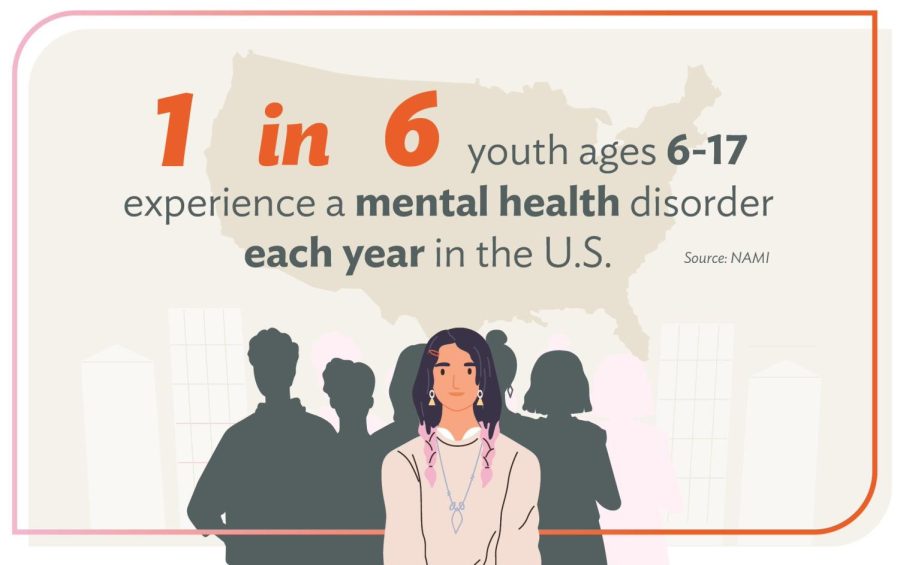New mental health training for juniors
Graphic from tMHFA resources on youth mental health disorders. Part of their strategy to bring more awareness to the mental health of teens.
For the 22-23 school year, juniors are receiving mental health training to inform and aid teenagers, and tackle problems of depression, anxiety, trauma, substance abuse, and suicide. This program is called teen Mental Health First Aid or tMHFA.
Students participating in this program are as Lindsay Taylor, the social worker on campus, commented, “Our mental health and getting help for that is no different than our physical health and taking care of ourselves when we are sick.” This brings awareness to different mental health challenges, making it easier for students to seek help by destigmatizing mental health issues. Junior Celeste Pacheo pointed out, “There’s more people being diagnosed, and although it might be uncomfortable for some people, it brings awareness to the fact that it’s around”
Destigmatizing depression and other mental health issues is an important step because more students than ever are being diagnosed with mental health issues. Taylor commented, “49.5% of adolescents ages 13-18 live with a mental disorder. More than one in five experience a severe impairment. That’s a significant number. This touches all our lives in one way or another.” With this large number of students being diagnosed, many are scared of seeking help. 7
tMHFA is session based and split into three different sections. The first session “starts with discussing mental health challenges and appropriate help,” Taylor commented. The second session talks about mental health crises like suicide, panic attacks, self injury, trauma, and bullying. The third session helps students reach out, and help friends in a substance abuse crisis, and ends with talking about resilience and recovery.
This program is notably different from others because of the interactivity between students and instructors. Students are rewarded for answering questions and there are discussions during these sessions. Junior Daniel Rustin commented, “I like how you got rewarded for answering questions. It made you want to raise your hand.” Students now have a greater reason to pay attention to important information. Helping students to be more open about these issues is an important tenet of tMHFA.
The goal of bringing tMHFA on campus as Taylor commented is that “Teens will feel better equipped to help themselves and or a friend struggling with mental health challenges or how to help a friend in crisis whether that be a mental health crisis or a substance abuse crisis.” The program itself is effective due to its level of interactivity and with instructors and students that helps students be more engaged, helping them take in uncomfortable information easier.

Parker is a Junior at Perry high school. This is his first year on the Precedent staff. Parker enjoys playing guitar, building models, and debating. Parker...



